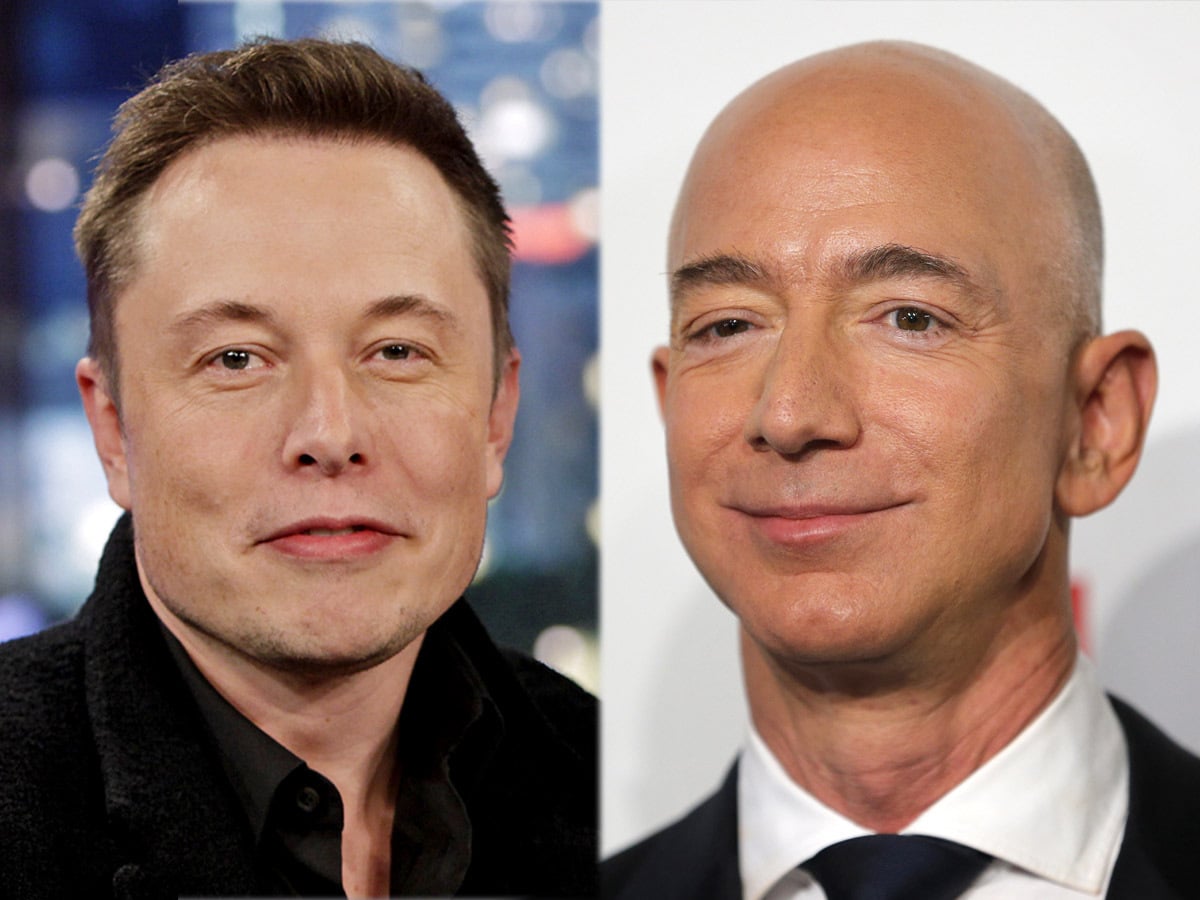For Elon Musk, CEO of SpaceX, and Jeff Bezos, owner of Blue Origin, realising their dreams of colonising Mars and the wider universe with their commercial space exploration companies has been a challenge so far in 2021.
As if space itself is not enough of a challenge, the two tech billionaires have been competing against each other for a NASA contract to develop a lunar spacecraft.
SpaceX was selected for the contract on 16 April, but later that month the government space agency told the space transportation services company to halt work on the project while the US Government Accountability Office (GAO) investigated the ruling.
According to data from Crunchbase, SpaceX had raised a total of $7.5bn in funding over 37 rounds. As CNBC noted in April, the company had a valuation of circa $74bn after raising $850m in February. It also raised a further $1.2bn on 14 April.
$7.5 billion
SpaceX's funding total across 37 rounds
In comparison, Blue Origin had only raised a total of $13m from a NASA grant it received in August 2018 to build a lunar lander for the government agency’s Blue Moon project.
While Bezos’ company hasn’t announced any plans to go public yet, investors have high hopes for a SpaceX IPO.
Space race heats up
NASA’s Artemis programme to send US astronauts back to the moon wasn’t always the cause of a rift between the two space companies. Back in April 2020, NASA picked SpaceX, Blue Origin and defence contractor Dynetics — a subsidiary of Leidos [LDOS] — to build the next spacecraft for lunar landings as early as 2024.
However, as the high-profile project got underway, NASA decided to select SpaceX to continue developing the first commercial human lunar lander. The decision came at a time when the company was already flying astronauts to the International Space Station on behalf of the government agency.
The contract had a total value of $2.9bn, which for a company that relies on rockets, space taxis and satellites for revenue was a big win. It boosted SpaceX’s profile as a leading US aerospace company and solidified its partnership with NASA.
In the week following, Blue Origin filed a protest with the GOA that accused NASA of — among other things — giving certain contract bidders a chance to revise bids and others not.
Bezos described the decision as “flawed” in a statement to CNBC, adding that NASA had “moved the goalposts at the last minute”.
The sub-orbital spaceflight services company had been a strong contender for the contract. Blue Origin had formed what it called a “national team”, also comprised of Lockheed Martin [LMT] and Northrop Grumman [NOC], to develop a spacecraft for the project.
In response to an article about Bezos’ reason to challenge the decision, Musk tweeted, “can’t get it up (to orbit) lol”.
As a result of the protests, “NASA instructed SpaceX that progress on the HLS (human landing system) contract has been suspended until GAO resolves all outstanding litigation related to this procurement”, the agency reportedly said on 30 April.
"NASA instructed SpaceX that progress on the HLS (human landing system) contract has been suspended" - NASA
Space-focused ETFs race ahead
While SpaceX and Blue Origin are private companies, investors have been gaining exposure to the space theme through various ETFs, such as the SPDR S&P Kensho Final Frontiers ETF [ROKT] and the Procure Space ETF [UFO].
The Procure Space ETF has had the better performance so far in 2021 compared to its peer. The fund has climbed 18.92% so far in 2021 to 6 May’s close, while the SPDR S&P Kensho Final Frontiers ETF was up 7.95% in the same period.
Meanwhile, the recently launched ARK Space Exploration & Innovation ETF [ARKX] is up just 0.69% between its launch on 30 March and 6 May’s close.
Investing in the space economy has grown significantly in recent years. In Space Capital’s most recent Space Investment Quarterly, the firm noted that $4.5bn was invested across 77 space companies in the first quarter.
“There has now been $186.7bn of equity investment into 1,480 unique companies in the space economy over the past 10 years,” the report said.
Continue reading for FREE
- Includes free newsletter updates, unsubscribe anytime. Privacy policy





